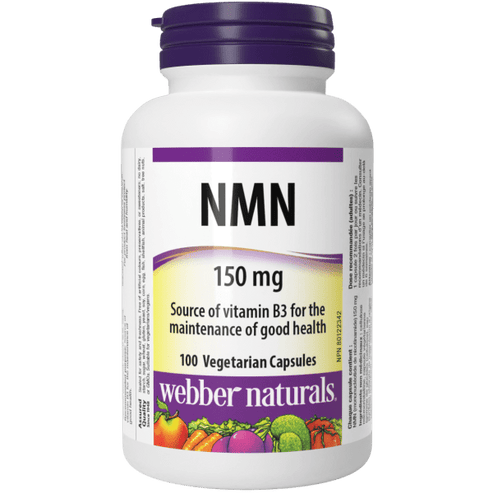Webber Naturals
Webber Naturals NMN 150 mg, 100 Vcapsules
Webber Naturals NMN 150 mg, 100 Vcapsules
SKU:WN5292
NPN 80122342
Couldn't load pickup availability
- Source of vitamin B3
- Contains a metabolically active form of vitamin B3, a precursor of NAD+
- Provides 300 mg of NMN per two vegetarian capsules daily
- Offers greater support than the NAD+ precursor nicotinamide riboside (NR)
- Suitable for vegetarians and vegans
| Each capsule contains: | |
| NMN (nicotinamide mononucleotide) | 150 mg |
Recommended dosage (adults): 1 capsule 2 times daily or as directed
Free of artificial colours, preservatives, or sweeteners; no dairy, starch, sugar, wheat, gluten, yeast, soy, corn, egg, fish, shellfish, animal products, salt, tree nuts, or GMOs.
Webber Naturals NMN contains nicotinamide mononucleotide, a metabolically active source of vitamin B3. NMN is used by the body to produce nicotinamide adenine dinucleotide (NAD+), an important metabolite involved in hundreds of metabolic processes.
Always read the label for full list of cautions and warnings. Please consult a health care practitioner before use. Keep out of reach of children.
Legal Disclaimer
Actual product packaging and materials may contain more and different information than what is shown on our website. We recommend that you do not rely solely on the information presented and that you always read labels, warnings, and directions before using or consuming a product.
Share




